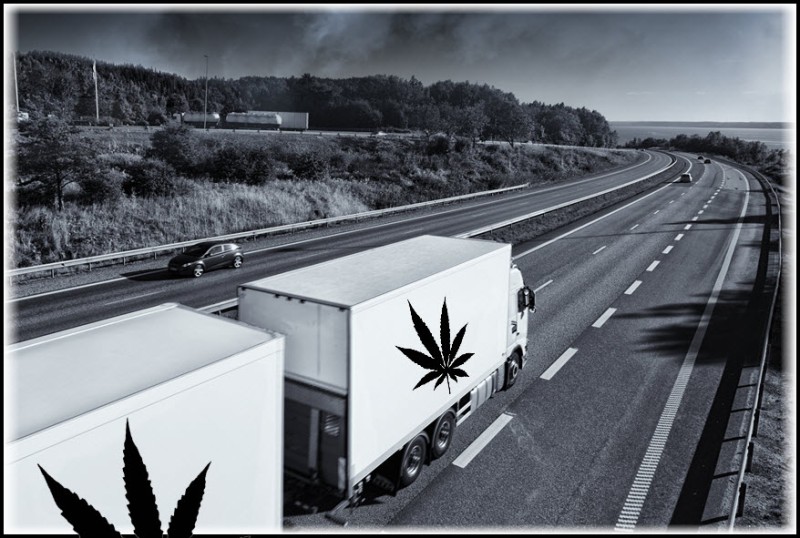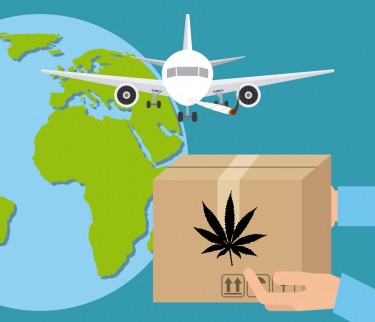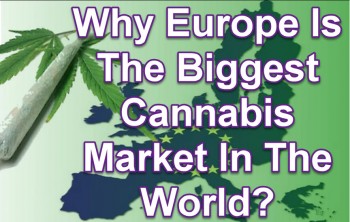Marijuana Tariffs – The Future of Interstate Cannabis Commerce and Social Equity Mandates?

Many states have mandates that require them to protect Social Equity and Economic Empowerment Businesses, so are tariffs the answer?
Will you walk into a dispensary in Massachusetts or Florida in the next few years and see “Oregon Grown White Widow” or “Emerald Triangle Blue Dream”, but with a price 3x higher than locally sourced and grown cannabis from within that state?
Don’t laugh, but marijuana tariffs may be a thing of the future.
The idea came up during a show titled “It Is Probably Legal to Ship Marijuana Across State Lines Due to the Dormant Commerce Clause in the Constitution”, that featured Professor Mikos of Vanderbilt University and Steven Hoffman, head of the Massachusetts Cannabis Control Commission. During one of the segments Mr. Hoffman said the voters approved a mandate that says he needs to protect local business and social equity-based marijuana businesses in the state of Massachusetts. (Paraphrased). Curt Dalton of Cannabis.net then asked, “Well, if the social equity grower in California is struggling due to oversupply, and the social equity grower in Massachusetts cannot grow enough cannabis to meet the state’s demand, who’s social equity business is more important? Who gets protected and who is left to fend for themselves in the free market?”
Does the Dormant Commerce Clause Protect Interstate Marijuana Sales?
One solution we may see in the future to solve this equation is interstate tariffs on cannabis. Tariffs, if you are unfamiliar with how they work, are as follows according to Wikipedia:
A tariff is a tax imposed by a government of a country or of a supranational union on imports or exports of goods. Besides being a source of revenue for the government, import duties can also be a form of regulation of foreign trade and policy that taxes foreign products to encourage or safeguard domestic industry. Tariffs are among the most widely used instruments of protectionism, along with import and export quotas.
Generally speaking, tariffs are done at the international level, and set up by countries to protect their local manufacturers, businesses, and producers. If you have ever heard the term NAFTA, the North American Free Trade Act, or TPP, Trans-Pacific Trade Partnership, then you may know about tariffs. A country will put a tax on an IMPORTED product that may compete with local businesses in order to encourage consumers to “buy local”. The tariff, or tax, is added to the price of the imported product, hence raising the price for the imported good to the local consumer while also making the local product more competitive at the register. Industry such as the wine industry, car parts and manufacturing, tech, and agriculture are big areas of international tariffs. Imports such as cars, smart phones, soybeans, etc. all fall under trade agreements, or in some cases, trade wars.
The long-term future of cannabis may certainly see tariffs. or at least cannabis included in such trade agreements as NAFTA or the TPP, because countries with warm climates and low costs of labor, electricity, and water will be able to grow and produce cannabis at a fraction of the cost that North American growers must spend to produce the same amount of marijuana.
Before international rules and pacts are set up, interstate commerce within the US may require some form of marijuana taxes, or tariffs, in order to protect small business in cannabis importing states (MA, FL, AZ) from the massive supply that could hit the market if cannabis surplus states (CA, OR, CO) could send their products legally across the country.
By law, if Massachusetts has a legal mandate to protect social equity and economic empowerment candidates as Mr. Hoffman says, how do you allow cannabis from high-surplus states to come into your state without bankrupting the local growers and SE and EE companies? Tax it!
While states do not have the inherent power on their own to create a tariff or tax on an out-of-state product, the Federal government could look into ways to alloow states some powers around this fact by citing social equity and economic empowerment rational. A long shot, but with cannabis not yet Federally legal, who knows?
If the Federal law changes to allow interstate cannabis shipping, or as Professor Mikos says in this interview here, that is probably already legal to ship marijuana across state lines due to the Dormant Commerce Clause in the US Constitution, then Mr. Hoffman will have to allow marijuana imports into Massachusetts, but he also needs to uphold the Question #4 mandate the voters of Massachusetts voted on and approved in order to legalize cannabis in his state.
A tax on out-of-state marijuana seems like the obvious answer. Put a 50% extra tax on cannabis not grown or cultivated in Massachusetts. If you want Emerald Triangle OG Kush, or Colorado grown Blue Dream, you can buy it by Federal law, it will just cost you more as in “import”. The tariff should be set as to make to make the price competitive to what local growers can bring a product to market for and that consumer could tolerate for a “premium import”. Remember, we are talking about marijuana here, not BMWs and Mercedes.
If the costs of an 1/8th of locally indoor grown marijuana is $35 plus tax in Massachusetts, the tariff or tax on an 1/8th of Emerald Triangle weed should command a hirer price, hence subtly pushing the consumer to “buy local” and save money. What if the Emerald Triangle 8th was $45? That is kind of how tariffs work in most cases, not so ridiculous that no one in America can buy a Mercedes or BMW, but expensive enough to be consider a “luxury” car. The marijuana industry already has adopted the “affordable luxury cannabis” brands as you can read here, so creating demand among consumers will not be hard or unwarranted. Cannabis brands toting the “reserve” “exotic” and “limited batch” monikers are already showing up on the marketing side of many MSO brands already.
Interstate marijuana tariffs are not such a far-fetched idea if states have a legal obligation to protect local and minority owned businesses. If you walked into a dispensary in Florida or Massachusetts and had locally grown ounces of cannabis at $300 and imported Emerald Triangle ounces at $375, it seems you create enough disincentive for most consumer to “buy up” to the imported brand, but also create a high-end market where if the consumer with enough discretionary income would like a more exotic strain, they are able to buy it. You want Chong’s Choice to Snoop Leaf’s in Florida, no problem, just prepared to pay more for them compared to the dispensaries white-label brand.
As pointed on in the article, “Brands Won’t Win the Marijuana Branding War, Growing Locations Will Be the Big Winners”, the area where the actual cannabis plant was grown will command a much higher price in the future, not the picture of the celebrity on the front of the packaging. In that case, tariffs based on geography are most certainly going to be coming as a “way to level the playing field”. Want indica from Kentucky, or a nice Jamaican black, volcanic soil pre-roll? Pay up, mister.
Federal law may soon dictate consumer have a choice, but state mandates may require some intervention to protect local marijuana businesses, at least in non-surplus cannabis states.
THE MARIJUANA TAX AND SHIPPING BUSINESS, READ MORE..
HOW MUCH CAN A STATE EXPECT IN TAX REVENUE FROM MARIJUANA?
OR..
INTERNATIONAL MARIJUANA SHIPPING BEGINS DESPITE UN DRUG TREATIES.









